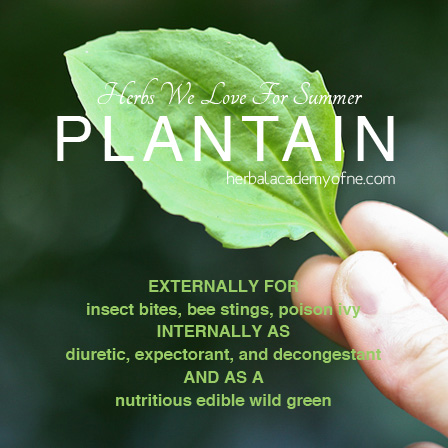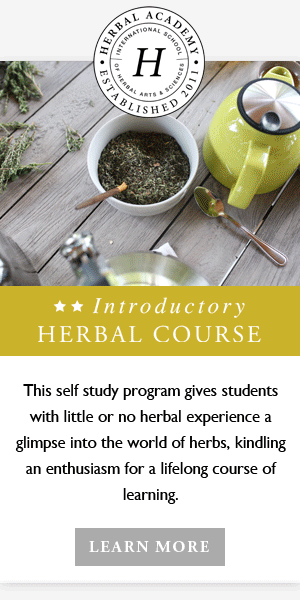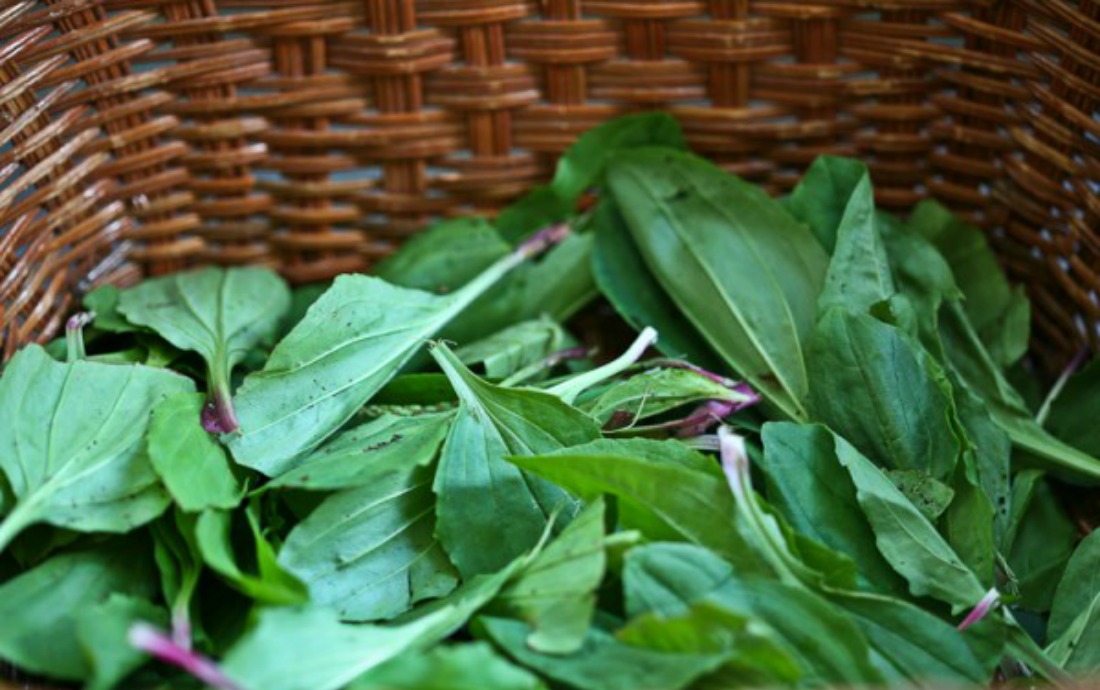
Plantain: Herbs We Love For Summer
When I was a little girl, my parents, unlike our neighbors with their perfectly smooth “chem lawns,” never applied pesticides or weed killer out of concern for their children’s health and to minimize our exposure to toxins. Our yard was viewed not as a status symbol but a place to romp and play, and so play I did for hours and hours, intermingling happily with our violets, dandelions, clover, and ground ivy.
I fancied one weed in particular, one with broad, veiny leaves that in midsummer sprouted a spike of seeds. I would tear off a leaf to see the veiny ribs, and slide my fingers up a stalk, dislodging the seeds with a satisfying pop.
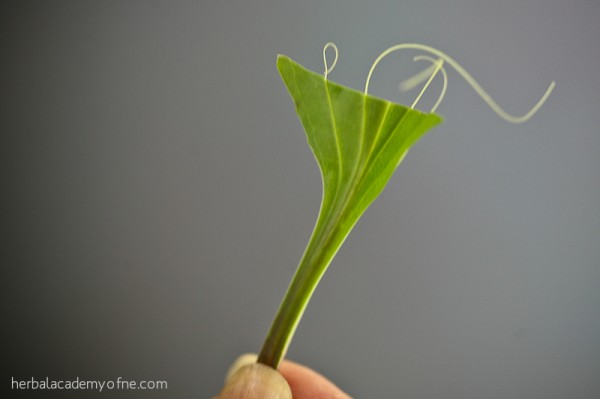
Years later while living in Vermont, I was speaking with a neighbor about a skin irritation or an insect bite. An herbalist, she brought me out to our weedy front lawn and showed me how to make a spit poultice from the same broad-leafed, veiny weed of my childhood. Plantago major, or plantain, an herb with a long history of edible and herbal use, had been underfoot my whole life, dismissed as nothing more than a weed.
Plantain is a perennial native European plant, brought to the Americas by Puritan settlers. The plant seemed to sprout up in colonizers footsteps, and indeed, was given the name “white man’s footprint” by some Native Americans.
Traditionally used to treat wounds, bruises, and insect bites and bee stings, plantain is also a nutritious edible, containing calcium, and high amounts of vitamins A, C, and K. It abates blood flow in minor cuts and helps soothe tissue damage.
Internally, plantain is diuretic, decongestant, and expectorant (if you’re wildcrafting plantain for food or internal use, be sure you’re 100% positive it’s really plantain, and harvest well away from roads and roof drip-lines).
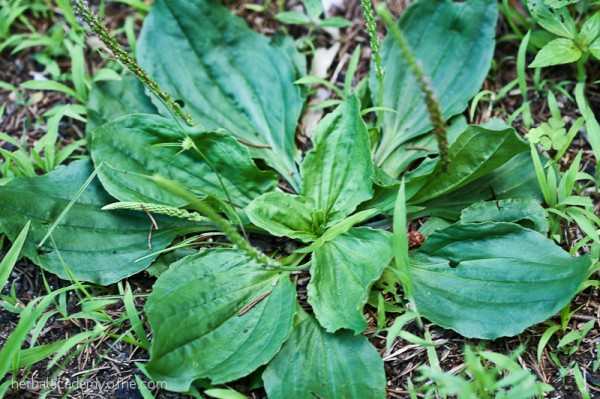
Summer in New England means mosquitoes! A spit poultice is an easy, on-the-spot way to soothe those maddeningly itchy, red welts. To make a spit poultice, break a clean leaf from the plantain rosette, wash if you can, and chew until the leaf becomes pulpy. Apply the pulp on the wound and let it sit until itching is soothed. If you have an adhesive bandage handy, you can use it to hold the poultice in place. You can learn more about poultices here.
This past week, I harvested a basket full of plantain from my parents yard to make into an oil (along with comfrey, calendula, lavender, and rose petals) so I can use this soothing herb all year round. It took a few decades, but my view of plantain has evolved from unnamed weedy plaything to an appreciated and valued herb. Finding appreciation for weeds is what herbalism is all about!
